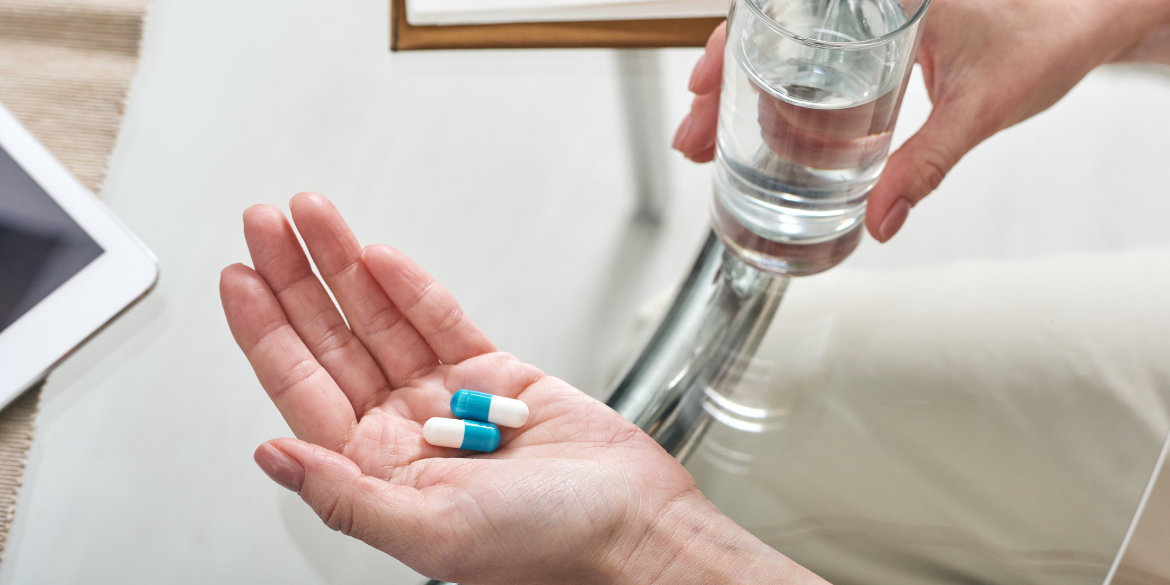Take a Supplement

Talk to your healthcare provider before starting any supplements.
Vitamin D and calcium work together. Supplementing vitamin D without adequate calcium does not appear to help with bone density.
Calcium
Experts recommend consuming 1200-1500mg of calcium per day.
If you do use supplements, choose calcium gluconate or calcium citrate for best absorption. Calcium is best absorbed in doses of 500mg or less at a time, so you may need to split up your supplements.
Foods that are high in calcium include:
- Dairy
- Fortified plant milks
- Green vegetables (broccoli, kale, bokchoy)
- Almonds
- Navy beans
- Oranges
- Sardines and other canned fish
Vitamin D
If you’re under 50 years old: Aim for 600 IU of vitamin D per day.
If you’re over 50 years old: Aim for 800-1000 IU of vitamin D per day.
In warm weather with no cloud cover, your body can produce all of its daily vitamin D with 10-15 minutes of direct sunlight exposure without sunscreen to the arms, legs, face or hands. Sunlight exposure through a window does not produce Vitamin D.
Many of us spend our lives indoors and have been taught the importance of sunscreen anytime we head outside. But, in order to maintain healthy vitamin D levels, we need to strike a balance. The right sun exposure for you depends on your skin pigmentation and personal or family history of skin cancer.
While sun exposure alone is sufficient for getting your vitamin D, supplements can be especially helpful if you live in an area with less daylight, during the winter or if you spend most of your time indoors.
More than half of the United States falls into an area with fewer sunny days and less direct sun exposure. In these areas, our skin cannot produce vitamin D very well outside of the summer months.
This zone includes all of the land north of 37 degrees latitude—which falls around San Francisco, CA, Denver, CO, St. Louis, MO and Richmond, VA. Cloud cover and pollution can also interfere with sunlight exposure and vitamin D production in any location.
There aren’t many food sources for vitamin D, so many choose to use supplements.
Foods that are high in vitamin D include:
- Fatty fish like salmon, swordfish and tuna fish
- Fish liver oils
- Smaller amounts are found in egg yolks, cheese and beef liver
- Some cereals and dairy products are fortified with vitamin D
Sign up for more unique women’s health content
By submitting this form, you agree to the Lisa Health Privacy Policy and Terms of Use


